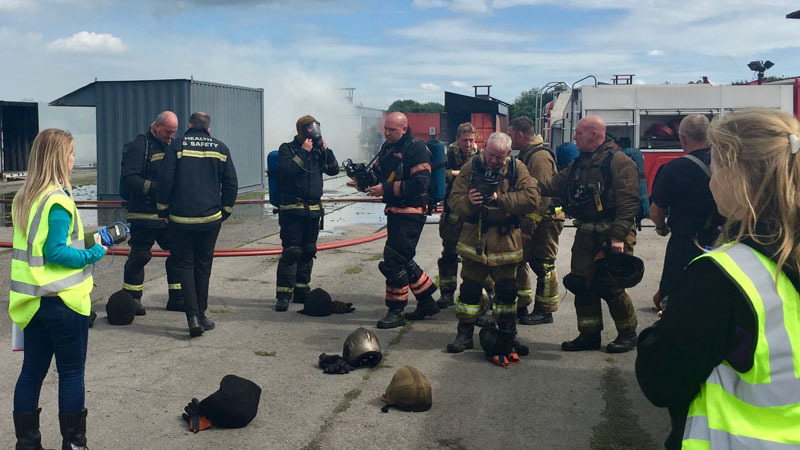HOW CAN WE BETTER PROTECT FIREFIGHTERS?
Dr Alan Richardson: Physiological, Immunological and Contaminant Monitoring of Firefighters and Instructors
Dr Alan Richardson from the University of Brighton knows how firefighters and fire instructors go through considerable physiological stress when exposed to fire. In the short term, physiological increases in core temperature and heart rate are seen alongside inflammation and suppressed immune function. Long term exposure to fires is not clearly understood. Previous work has shown that long term heat exposure suppresses immune function and causes inflammation and cardiac injury. While repeated exposure to smoke has been shown to raise contaminant levels, which are likely to increase cancer risk.
Alan’s novel and innovative study, supported by the Fire Service Research and Training Trust, is working with a large UK fire fighter and fire instructor population. It intends to finally address a number of monitoring, workload and contaminant exposure questions regularly posed by fire services nationally and internationally. This will feed into end-user friendly documentation to support future working guidance on these issues
We asked Alan, what made you approach the Trust?
We approached the trust as were knew it was the main funder for fire specific research in the UK.
How was the process of applying for a grant?
The process of applying was relatively easy, the form was straight forward to complete yet detailed and thorough. The board’s decision on funding was relatively quick compared to many other funding bodies in the UK.
Tell us what you are looking to achieve with the grant
From the grant we are looking to identify the level of contamination, inflammation and immunological function of full time firefighters and instructors in the UK over a 6 month period. This will involve logging all fire exposures and providing blood and urine to analyse markers at set intervals and after every fire exposure. This will be the world’s largest study into firefighter biomarkers and contaminants using training and real fires. We’ve had lots of people wanting to take part which is great.
Would you recommend any other individuals to apply?
I recommend applying to anyone that has a project idea that can potentially benefit the training, health and welfare of our fire service.

